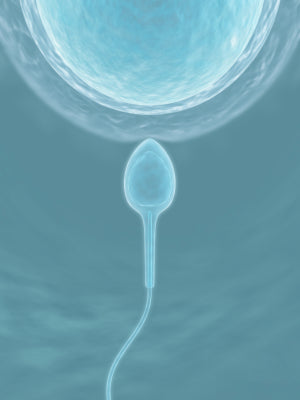
What Is A Chemical Pregnancy?
A chemical pregnancy is a miscarriage that occurs very early on in a woman’s pregnancy. Most pregnancy tests can detect a pregnancy 3 or 4 days before your period is due. The chemical pregnancy / early miscarriage usually occurs close to the time the period was due.
The Case for Using a Pregnancy Test AFTER Your Period is Due
Women who are trying to get pregnant love extremely sensitive pregnancy tests. While they let you know you are pregnant sooner, they also have an unfortunate downside.
Most chemical pregnancies will occur around the time your period is due. When you test early, you risk having to deal with the crushing sadness that comes with your period arriving.
You can avoid the emotional rollercoaster if you wait for your period to be late before you test. If you had waited, you wouldn’t have known about the pregnancy in the first place.
Symptoms of a Chemical Pregnancy
The signs of a chemical pregnancy are like your usual period. Your period will start and may be heavier than normal. You may have more cramps and pass more clots than usual.What is the Difference Between a Chemical Pregnancy and a Miscarriage?
They are both types of miscarriage. When the loss happens determines if you had a chemical pregnancy or a miscarriage.
Ultimately, it is just a label. A loss is a loss and feels just as devastating no matter what you call it. A "chemical pregnancy" or "early miscarriage" is when the loss occurs within a week of when your period should have started.
Doctors will say a pregnancy loss at six weeks gestation or more is a miscarriage. The embryo will have implanted in the uterus. Your doctor would be able to see the embryo with an ultrasound.
Common Reasons Why Chemical Pregnancies Occur
The majority of chemical pregnancies occur because there are chromosomal problems with the fetus. Other potential reasons include:- Congenital or acquired abnormalities in the uterus
- Low hormone levels
- Inadequate lining in the uterus
- Luteal phase defect
- Certain infections
Chemical Pregnancies - Can They Be Prevented?
The majority of chemical pregnancies aren’t preventable.
Please see your doctor if you are experiencing recurrent chemical pregnancies. Your doctor will be able to investigate the root cause of the pregnancy loss issues. They will help form a plan of action which will help you achieve a successful pregnancy.
There are several potential treatments to help lessen the likelihood of chemical pregnancies. Your doctor might prescribe vitamin B6 in doses of at least 50mg each day. Baby aspirin helps prevent early miscarriages. Even progesterone cream can help create pregnancy friendly hormone levels.
Your treatment plan will depend on your symptoms. You should work closely with your doctor to determine the best option for you.
If an infection is the cause of your chemical pregnancies, your doctor will be able to help. Antibiotics can resolve any infections that you’re experiencing. Clearing up the infection will help lessen the chances that you will have another chemical pregnancy.
References
Sjaarda LA, Radin RG, Silver RM, Mitchell E, Mumford SL, Wilcox B, Galai N, Perkins NJ, Wactawski-Wende J, Stanford JB, et al.
Preconception Low-Dose Aspirin Restores Diminished Pregnancy and Live Birth Rates in Women With Low-Grade Inflammation: A Secondary Analysis of a Randomized Trial.
J Clin Endocrinol Metab. 2017 May 1;102(5):1495-1504. doi: 10.1210/jc.2016-2917. PubMed PMID: 28323989; PubMed Central PMCID: PMC5443323.
Tags:
Getting Pregnant
Quick links
Search
Contact Us
Shipping Information
Helpful Info
Terms of Service
Privacy Policy
Do not sell my personal information
Contact us
About us
BabyHopes.com is a family owned and operated business, opened in January 2001. We have been serving the trying to conceive community for over 20 years.
